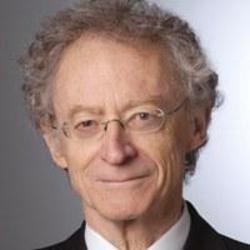Sydney Morning Herald | 3 April 2011

by Harriet Alexander
FOOD security will be the greatest challenge to civilisation this century, with food shortages leading to higher prices, political instability and mass migration, warn scientists, farmers and academics.
And while Australian farms are capable of feeding the nation until the country's population more than doubles, productivity is falling and the effects of food crises overseas are already being seen in rising grocery costs, they say.
The National Sustainable Food Summit will explore ways to boost productivity in a changing environment, including subsidising farmers to use environmentally sound practices, turning hobby farms into working properties, and buying farming land in Mozambique.
Advertisement: Story continues below
Sharp rises in food prices in 2008 and 2010 had demonstrated that supply was no longer meeting demand, said Professor Julian Cribb, author of The Coming Famine, who will speak about future food challenges.
However, the ramifications of the problem are even starker overseas, Dr Cribb said. Two governments - in Tunisia and Egypt - had fallen as a result of riots over shortages of food and its rising cost.
These type of upheavals will inevitably affect Australia through increased immigration and regional instability unless the country invests in research and innovation to increase global food production.
''We're not training our young farmers,'' Dr Cribb said. ''We're not training agricultural scientists.
''This is probably the most critical issue that civilisation will face this century. [Food security] doesn't just mean 'do we have enough to eat?', it means 'are we secure in our region?'''
If global food production is to be increased, new methods of farming will need to be developed, and that requires a greater investment in agricultural science research, Dr Cribb said.
The United Nations' Food and Agriculture Organisation estimates food requirements will double by 2050 due to population increases and higher living standards, all at a time of accelerating urbanisation, land and water degradation and rising energy costs.
Australian farms produce enough food to feed 60 million people, but productivity has plateaued over the past few years.
The NSW Natural Resources commissioner, John Williams, says the federal government should consider putting a goods and services tax on food that reflects the true cost of production. This could then be used to pay farmers stewardship grants to take care of the environment.
''The tragedy to me is fish,'' said Professor Williams, who will give the keynote address alongside fellow scientist and author Professor Tim Flannery.
''I can get to the Sydney fish markets and I can buy snapper from the NSW coast for about $24 a kilo, which is produced as sustainably as we know how in terms of the fish stock. But at the same market I can buy fish for about $5 a kilo from the Mekong that's doing real damage to the Mekong.''
Other speakers will urge a rethink of land use in Australia, including the prospect of producing more food within cities and on unproductive hobby farms.
One of the prime minister's advisers on science and innovation, Professor Robin Batterham, wants Australian companies to consider buying land in Mozambique to counterbalance foreign purchases of farming land in Australia and shore up Australia's food supply.
''Other countries are investing in Australia … so that the produce of the land can go to their countries,'' Dr Batterham said. ''As an investment, why aren't some of our larger farms - that is the companies that own them - also investing in places where the soil is a bloody sight better than Australia's?
''This is no different to companies like Rio Tinto investing in sub-Saharan countries for minerals.''
Farms that had been whittled down into tiny subdivisions over decades may have to amalgamate, and those used as holiday residences may have to start producing food, said Dr Batterham, who is deputy chairman of a food security task force that reports to the Prime Minister's Science, Engineering and Innovation Council.
The summit has been organised by the Three Pillars Network, an independent knowledge network for sustainability.












